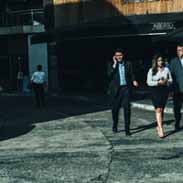AP World History Chapter 10 Terms – Flashcards
Unlock all answers in this set
Unlock answersquestion
Middle Ages
answer
the period of history between classical antiquity and the Italian Renaissance
question
Three-Field System
answer
a system of farming developed in medieval Europe, in which farm land was divided into three fields of equal size and each of these was successively planted with a winter crop, planted with a spring crop, and left unplanted.
question
Feudalism
answer
a political and social system that developed during the Middle Ages; nobles offered protection and land in return for service
question
Hundred Years' War
answer
Series of campaigns over control of the throne of France, involving English and French royal families and French noble families.
question
Thomas Aquinas
answer
(Roman Catholic Church) Italian theologian and Doctor of the Church who is remembered for his attempt to reconcile faith and reason in a comprehensive theology
question
Black Death
answer
the epidemic form of bubonic plague experienced during the Middle Ages when it killed nearly half the people of western Europe
question
Gothic
answer
a style of architecture developed in northern France that spread throughout Europe between the 12th and 16th centuries
question
Clovis
answer
king of the Franks who unified Gaul and established his capital at Paris and founded the Frankish monarchy
question
Vassals
answer
lesser lords who pledged their service and loyalty to a greater lord -- in a military capacity
question
Pope Urban II
answer
Leader of the Roman Catholic Church who asked European Christians to take up arms against Muslims, starting the Crusades
question
Scholasticism
answer
A philosophical and theological system, associated with Thomas Aquinas, devised to reconcile Aristotelian philosophy and Roman Catholic theology in the thirteenth century.
question
Vikings
answer
one of a seafaring Scandinavian people who raided the coasts of northern and western from the eighth through the tenth century.
question
Carolingians
answer
the family that ruled the Franks in Gaul from 751 to 987 in the Carolingian Dynasty. This began when Pepin was declared king. They lost power after the Treaty of Verdun.
question
Capetians
answer
French dynasty ruling from the 10th century; developed a strong feudal monarchy.
question
St. Claire of Assisi
answer
a noblewoman who founded an order based on St. Francis' teachings
question
Troubadours
answer
travleing performers singing about chivalriss deeds performed by knights for ladies
question
Manorialism
answer
An economic system based on the manor and lands including a village and surrounding acreage which were administered by a lord. It developed during the Middle Ages to increase agricultural production.
question
Charles Martel
answer
the Frankish commander for the battle of Tours. He defeated the Muslimsin the Battle of Tours, allowing Christianity to survive throughout the Dark Ages. He in a way started Feudalism by giving land to his knights that served for him.
question
William the Conqueror
answer
duke of Normandy who led the Norman invasion of England and became the first Norman to be King of England
question
Gregory VII
answer
the pope who fought to establish the supremacy of the pope over the Church and the supremacy of the Church over the state (1020-1085)
question
Hanseatic League
answer
a commercial and defensive confederation of free cities in northern Germany and surrounding areas
question
Serfs
answer
a person who lived on and farmed a lords land in feudal times
question
Charlemagne
answer
King of the Franks (r. 768-814); emperor (r. 800-814). Through a series of military conquests he established the Carolingian Empire, which encompassed all of Gaul and parts of Germany and Italy. Illiterate, though started an intellectual revival. (250)
question
Magna Carta
answer
This document, signed by King John of Endland in 1215, is the cornerstone of English justice and law. It declared that the king and government were bound by the same laws as other citizens of England. It contained the antecedents of the ideas of due process and the right to a fair and speedy trial that are included in the protection offered by the U.S. Bill of Rights
question
Peter Abelard
answer
Author of Yes And No; university scholar who applied logic to problems of theology; demonstrated logical contradictions within established doctrine.
question
Jacques Coeur
answer
One of Europe's most extrordinary merchants; demonstrated the opportunities and risks of new forms of trade.
question
Moldboard
answer
Heavy plow introduced in northern Europe during the Middle Ages; permitted deeper cultivation of heavier soils; a technological innovation of the medieval agricultural system.
question
Holy Roman Emperor
answer
honerary title given by the Pope given to the Christian King by the Pope that gives that individual the authority to tell other kings wat to do in time of war
question
Parliaments
answer
bodies representing privileged groups; institutionalized feudal principle that rulers should consult with their vassals; found in England, Spain, Germany, and France.
question
St. Bernard of Clairvaux
answer
Emphasized role of faith in preference to logic; stressed importance of mystical union with God; successfully challenged Abelard and had him driven from the universities.
question
Guilds
answer
business associations that dominated medieval towns; they passed laws, levied taxes, built protective walls for the city, etc. Each guild represented workers in one occupation such as weavers, bakers, brewers, sword makers, etc.



